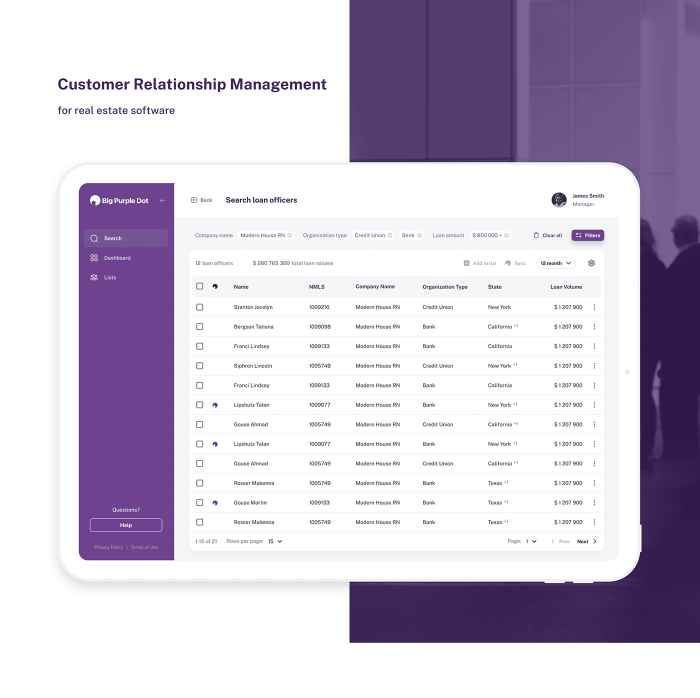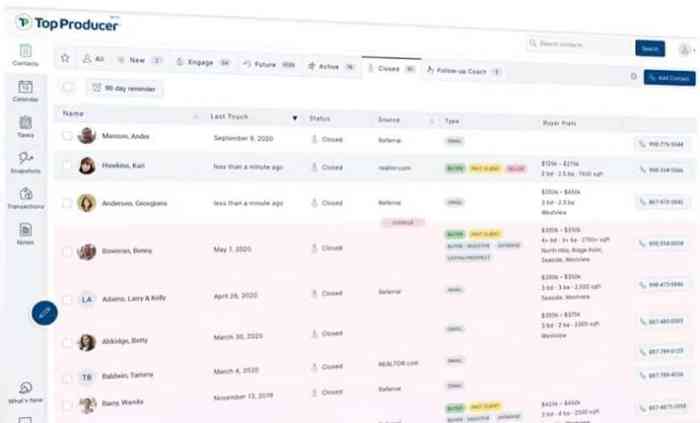CRM platforms for real estate are revolutionizing how agents and brokers manage clients, track deals, and ultimately, boost their bottom line. This guide dives deep into the best platforms available, exploring their features, benefits, and how they can elevate your real estate business to new heights.
From streamlining communication to automating tasks, CRM platforms are transforming the way real estate professionals operate. We’ll examine key features like lead management, contact organization, and deal tracking, providing practical insights into how to choose the right platform for your needs and maximize its potential.
Real estate is a competitive field, and staying organized and efficient is key to success. A robust Customer Relationship Management (CRM) platform can be a game-changer, streamlining your processes, nurturing leads, and ultimately boosting your bottom line. This comprehensive guide dives deep into the world of CRM platforms for real estate, exploring their benefits, features, and how to choose the right one for your needs.
Understanding the Importance of CRM in Real Estate: Crm Platforms For Real Estate
In the fast-paced world of real estate, managing client interactions, property listings, and sales activities manually can be overwhelming and lead to missed opportunities. A dedicated CRM platform centralizes all this information, allowing agents, brokers, and teams to work more efficiently. It acts as a single source of truth for all client data, communication history, and property details, leading to better customer service and improved sales conversion rates.
Key Benefits of Real Estate CRM Platforms
- Streamlined Communication: Centralized communication channels ensure that all messages are tracked and responded to promptly.
- Enhanced Lead Management: Effectively manage leads, track their interactions, and nurture them through the sales funnel.
- Improved Customer Relationship Management: Build stronger relationships with clients by providing personalized service and keeping track of their needs.
- Increased Productivity: Automate repetitive tasks, freeing up agents to focus on client interactions and deal closures.
- Data-Driven Insights: Gain valuable insights into your sales performance, client behavior, and market trends.
- Improved Collaboration: Facilitate seamless communication and collaboration between agents, brokers, and support staff.
Types of Real Estate CRM Platforms
Various CRM platforms cater to different real estate needs, from individual agents to large brokerage firms. Some platforms are specifically designed for managing listings, while others focus on lead generation and nurturing.

Source: realestatecrm.io
Agent-Specific CRM Platforms
These platforms are typically tailored for individual agents, offering tools for managing client interactions, property listings, and marketing efforts. They often come with affordable pricing models.
Brokerage CRM Platforms
These comprehensive solutions are designed for large brokerage firms and teams, offering advanced features for managing multiple agents, properties, and clients. They often include robust reporting and analytics capabilities.
Cloud-Based vs. On-Premise CRM, Crm platforms for real estate
Cloud-based CRM platforms offer accessibility and scalability, while on-premise options provide more control over data security and customization. Choosing the right option depends on your budget, security requirements, and technical expertise.
Key Features to Look For in a Real Estate CRM
When evaluating CRM platforms, consider the specific features that align with your needs and business processes. Look for features like:
- Lead Management Tools: Lead capture, scoring, and nurturing capabilities.
- Property Management: Listing management, showing appointments, and transaction tracking.
- Communication Tools: Email integration, SMS messaging, and in-app communication.
- Reporting and Analytics: Dashboards, reports, and custom visualizations.
- Mobile Access: Access and manage your CRM on-the-go.
- Integration Capabilities: Integration with other real estate software and tools.
Top Real Estate CRM Platforms
Many reputable CRM platforms cater to the real estate industry. Consider your needs and budget when making your selection. Some popular choices include (without specific recommendations): [Insert a brief, non-biased overview of 3-5 popular real estate CRM platforms and their key features.]
Implementing Your Chosen CRM
Successful CRM implementation requires careful planning and training. Ensure that your team is adequately trained on using the platform and that all necessary data is migrated. This will help you get the most out of your investment.
Frequently Asked Questions (FAQ)
- Q: What is the cost of real estate CRM platforms?
A: Pricing varies greatly depending on the platform, features, and user count.
- Q: How long will it take to implement a real estate CRM?
A: Implementation time depends on the complexity of your needs and the platform’s configuration.
- Q: How can I ensure data security with a CRM platform?
A: Choose platforms with robust security protocols and data encryption.
- Q: What are the benefits of integrating CRM with other real estate tools?
A: Integration streamlines workflows, automates tasks, and provides a unified view of all real estate activities.
Conclusion
Implementing a CRM platform is a strategic investment that can significantly enhance real estate operations. By selecting a platform that meets your specific needs, training your team, and integrating it seamlessly with existing systems, you can maximize efficiency, improve client relationships, and ultimately drive success in the real estate market.
Call to Action (CTA)
Ready to elevate your real estate business? Explore the options available and discover how a CRM platform can revolutionize your operations. Visit [link to a relevant resource, e.g., a comparison page or a list of recommended CRM platforms] to learn more.
In conclusion, CRM platforms for real estate offer significant advantages for agents and brokers. By streamlining processes, enhancing communication, and boosting productivity, these tools can be invaluable assets. Choosing the right platform is crucial, and understanding its features and functionalities will empower you to make the most of your real estate career.
FAQ Overview
What are the common pricing models for CRM platforms?

Source: behance.net
CRM platforms often utilize tiered pricing models, offering different packages based on features, user limits, and storage space. Some offer a free version with limited functionality, while others provide custom pricing based on individual needs.

Source: fitsmallbusiness.com
How do CRM platforms help with lead generation?
CRMs can automate lead capture from various sources, allowing agents to focus on nurturing relationships and converting leads into clients. They can also track interactions and personalize communication, ultimately increasing conversion rates.
Are there any security concerns with using CRM platforms?
Security is a primary concern with any software, and CRM platforms are no exception. Look for platforms with robust security measures, including data encryption and access controls. Understanding their data handling policies is essential.
How do I integrate my existing tools with a CRM platform?
Many CRM platforms offer APIs or integrations with popular real estate tools like email marketing platforms, property management systems, and accounting software. Check the platform’s documentation for compatibility details.